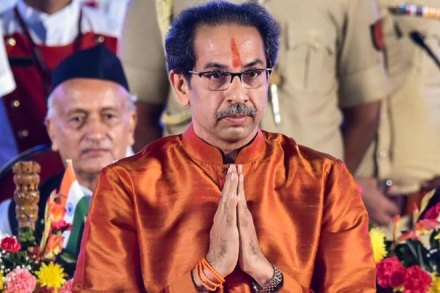At a time when the state of Maharashtra struggles to deal with the coronavirus pandemic which has hit the western state the hardest in the country, a crisis looms large for Chief Minister Uddhav Thackeray that potentially threatens his position at the helm of affairs in the state. CM Uddhav, who leads the Maha Vikas Aghadi government in the state in alliance with the Nationalist Congress Party of Sharad Pawar and the Congress, finds himself in a rather unusual predicament over the Governor’s reluctance to nominate him as a member of the state legislative council.
Uddhav was unanimously elected as the leader of the alliance government and took oath as the CM on November 28, 2019. Article 164(4) of the Constitution requires him to become a member of the legislature within the period of six months from the date he took oath. In Uddhav’s case, the last date is May 24, 2020. However, the Election Commission has postponed all elections due to the coronavirus outbreak. Therefore, the state cabinet on April 9 recommended that Uddhav be nominated to the Legislative Council from the Governor’s quota.
Article 171 of the Constitution mandates the Governor to nominate members to the Legislative Council who have special knowledge or practical experience in literature, science, art, cooperative movement and social service. However, the Governor has not taken any decision yet, leaving leaders of the ruling alliance restless.
Currently, there are two vacancies among members from Governor’s quota due to resignations of NCP MLAs who joined the BJP before the assembly polls.
Although the Election Commission has postponed all elections, there is another legal issue pertaining to Uddhav being nominated to the Legislative Council on one of its two vacancies.
According to Section 151A of Representation of the People Act 1951, nomination to the post cannot be done if “the remainder of the term of a member in relation to a vacancy is less than one year”. The terms of the two vacancies in the Legislative Council end on June 6.
All eyes are now on Governor Bhagat Singh Koshyari who will have to take a decision on nominating Uddhav to the Legislative Council from the Governor’s quota. The delay in taking a decision has prompted a sharp reaction from the ruling Shiv Sena which has cited Koshyari’s BJP affiliation to question the delay.
In the past, a similar situation has arisen in other states. In 1995, Congress leader Tej Parkash Singh was appointed as a minister in the Punjab government in September 1995. At the time of appointment, he was a member of the Assembly. In March 1996, the six months period lapsed and he could not get elected. Singh resigned but was appointed again as minister during the term of the same legislature.
His second appointment was legally challenged but the Punjab and Haryana High Court dismissed the plea. The Supreme Court later held that Singh’s second appointment “without getting elected in the meanwhile was improper, undemocratic, invalid and unconstitutional”. By the time the top court delivered its verdict in 2001, the tenure of the current had expired.
A similar situation had arisen in Tamil Nadu when now deceased AIADMK leader J Jayalalithaa had to briefly resign as Chief Minister in 2001 due to legal troubles despite getting a mandate. Since Jayalalithaa was convicted in corruption cases, she was not allowed to contest elections but was elected party leader and became CM. Her appointment was challenged in the Supreme Court and before her six months window, the court ruled that her appointment was unconstitutional. This forced her to resign from the CM’s chair only to return after the Madras High Court acquitted her.
